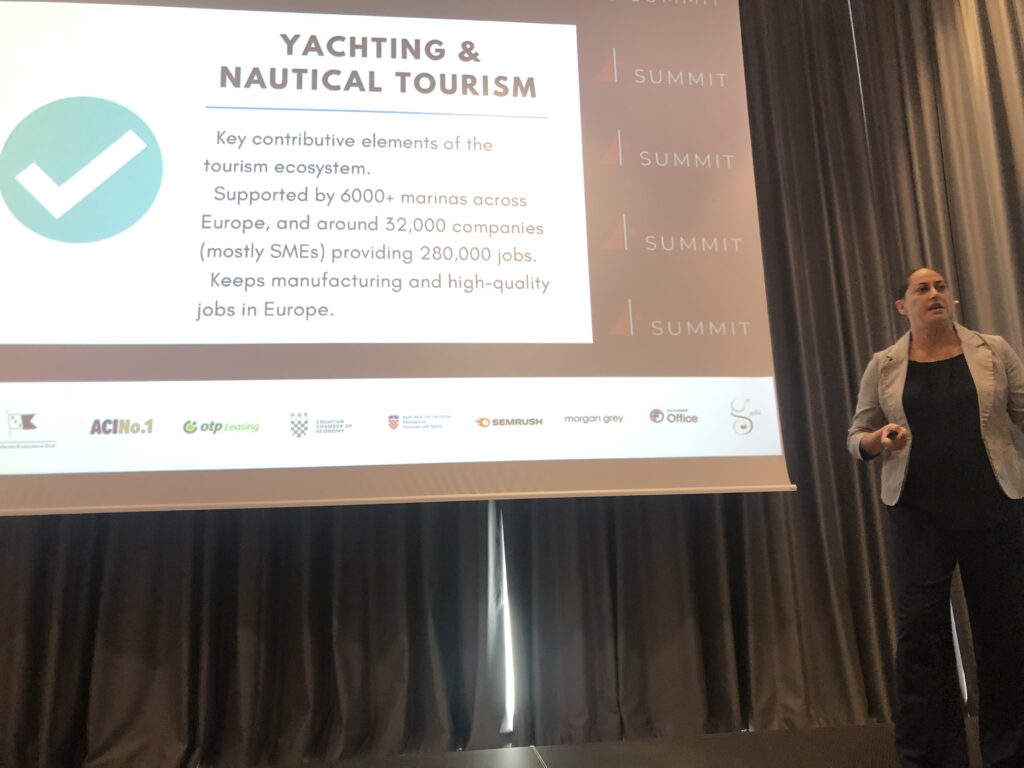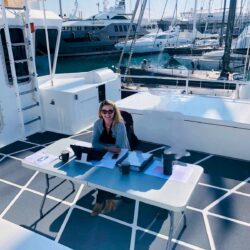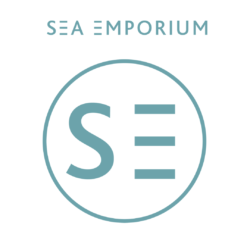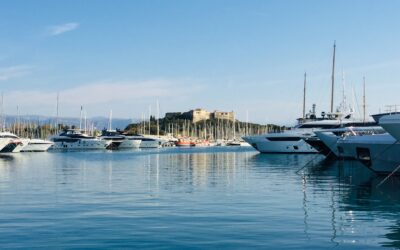Online Yachting Directory for Antibes
Helping you easily find local products, services & suppliers
Antibes Yachting goes beyond conventional business to connect you with opportunities and industry-specific advice.
Latest Business Listings
Rebecca's skills in public relations have made her a well-known entity in yachting and luxury market places. I would not hesitate to put the future of my business in her hands, as I know that she would push it to be as successful as she possibly could. I highly recommend Rebecca and Antibes Yachting.
Rhea Rouw, Company Owner, Yachting International Radio
Rebecca is a natural talent when it comes to writing, she helped me with my website and everything she wrote was spot on. One appointment to discuss quickly the general idea of what I wanted and a few days later, the website was ready with Rebecca's texts. I couldn't have asked for a better/faster/more efficient service. I was totally satisfied and I can only recommend Antibes Yachting !
Jocelyn Passeron, Owner, TheYachtPhotographer.com
Rebecca's knowledge of the French Riviera is second to none. Her posts offer a truly exciting style and insights of huge benefit to anyone visiting the south of France. I would not hesitate to recommend Rebecca to anyone looking for a true "guru" on the ground on the Cote d'Azur or to add great content to their blog/website. She researches any subject thoroughly and always surprises me with her fantastic writing.
Alexander Coles, Charter Broker, Bespoke Yacht Charter
Rebecca was my first call when I needed some website copy. She worked meticulously through my requirements to understand how I wanted to present myself to the industry and provided some excellent copy that we edited a few times to get it just how I liked. A completely painless experience with a professional.
George ‘Ben’ Gill, Founder & Owner, Miller Compton Maritime
Rebecca is an excellent writer and a great collaborator who brings value to our brand and the yachting industry with passion and dedication.
Mavi Iglesias, SEA Yacht Group
Rebecca's marketing & PR skills are excellent and she has helped our business greatly, especially during a time of introducing our brand, products and services to the superyacht industry.
Daniel Bruntsch, Global Head of Marine, BROMIC Heating
Add Your Business to Our Directory & Reach More Potential Customers
Latest News
Cybersecurity Awareness For The Yachting Industry
In the yachting industry, cyber threats are becoming increasingly prevalent. As technology advances, so do the risks associated with it.
Yachts and shore-based companies are more connected now than ever before. This makes them attractive targets for cybercriminals looking to exploit vulnerabilities.
In this article, I discuss cybersecurity for yachting companies.
Understanding and implementing effective cybersecurity measures is crucial to protect your assets and information in the digital age.
Understanding the Cyber Threat Landscape in Yachting
With cybersecurity an ongoing topic, when was the last time you changed your passwords and checked your software and plugs-in were updated?
Make security your priority – for your staff, your website, and in-house systems.
I freelance for a lot of clients.
And I am always shocked that yachting companies are so relaxed about security; many have no procedures or guidelines at all.
Yachting companies will gladly share everything with multiple freelancers without a second thought, including logins for control panels, hosting accounts, social media accounts, and websites.
Believe it or not, I have encountered some superyacht companies who DO NOT KNOW who has access or the passwords to their analytics, domain, social media or website.
On vessels themselves and in shore-based businesses, if you run a cyber risk assessment, you can be sure that default passwords have been left on critical devices.
Understanding the cyber threat landscape is the first step towards enhanced cybersecurity. This includes being aware of the types of threats, such as malware, ransomware, and deliberate malicious acts that target systems, persons (via social engineering), and data, to compromise a vessel or yachting company ashore.
Yachts are particularly vulnerable to cyber threats due to their reliance on technology. From navigation systems to onboard entertainment, technology is integral to the modern yachting experience.
Matthew Roberts, a yachting cybersecurity professional, raised a vital point a few months ago: The implications for cyber security with having more AI and metaverse applications. Social engineering, phishing, and scams are getting hyper-personalised with voice, video, and image generation when they are being ‘trained’ by your social media content.
I’ve had feedback that one yacht management company signs a one-pager to say their vessels are cyber secure – not exactly a glowing report about the technical, operational, and organisational measures to manage cybersecurity risks.
Essential Cybersecurity Measures for Yachting Companies
Without proper cybersecurity measures, personal data, onboard systems, and even the safety of guests and crew can be compromised. A comprehensive cybersecurity strategy should include a range of measures. These can range from technical solutions, such as firewalls and encryption, to organisational measures, such as staff training and incident response planning.
Here are some essential cybersecurity measures for yachting companies:
- A dedicated cybersecurity team or expert.
- Secure and encrypted communication channels.
- Regular software and system updates.
- Regular training and awareness programs for crew and staff. This helps everyone understand the importance of cybersecurity and their role in maintaining it. Basic security processes should be in place, such as strong passwords and two-factor authentication (2FA) or multi-factor authentication (MFA). By fostering a culture of cybersecurity, companies can ensure that their staff are vigilant and proactive in identifying and responding to potential threats. This collective effort can significantly enhance the overall security of a yacht or a company.
- A comprehensive cybersecurity policy and incident response plan involves identifying, assessing, and mitigating cyber risks – this applies to both yachts and companies ashore. It outlines the company’s approach to managing cyber risks, including the roles and responsibilities of staff, the procedures for handling sensitive data, and the steps to take in the event of a cyber incident. Equally important is an incident response plan. This plan provides a clear roadmap for responding to a cyber incident, minimising the impact, and recovering as quickly as possible. It’s a vital part of any cybersecurity strategy, ensuring that companies are prepared for any eventuality.
- Cybersecurity insurance to mitigate financial risks.
- Regular cybersecurity audits are crucial for maintaining the security of yachts and shore companies. These audits involve a thorough examination of the company’s cybersecurity measures, identifying potential vulnerabilities and areas for improvement.
A few extra considerations from my perspective as a freelancer:
Contracts: Sign a proper contract with employees and/or freelancers covering scope of work, non-disclosure and non-compete clauses. Make sure you define your intellectual property clearly, including confidentiality, trademarks and patents. Note for Freelancers: Before starting a project, it’s essential to weigh the pros and cons, assess your risk tolerance, and put an agreement in place accordingly.
Administrator Access: Make sure you monitor the access privileges; sometimes you need to grant a freelancer Administrator rights. If you do, then put it in the freelancer’s contract that they may only use the access control to enable them to use the assets to fulfil their duties. You should not post any sensitive login information in the chat feeds for WhatsApp or Facebook Messenger.
Offboarding: When a freelancer finishes a project or an employee leaves your company, you need to follow proper offboarding procedures. E.g. All access control should be removed (this includes in-house systems, social media access, advertising portals, and the backend of your website). Note for Freelancers: Be proactive and let the client know you are mindful of THEIR security, give proof that you have deleted the files/copies from your systems and computer.
By implementing these measures, yachts and yachting companies can significantly reduce their cyber risk and ensure the safety and privacy of their clients.
The Role of International Regulations and Guidelines
International regulations and guidelines play a significant role in shaping cybersecurity practices in the yachting industry. They provide a framework for companies to follow, ensuring that they meet certain standards and comply with legal requirements.
The ISO/IEC 27001 is now the most recognised international standard for information security management systems, offering a systematic approach to managing sensitive company information. By adhering to these guidelines, yachting companies can demonstrate their commitment to cybersecurity, enforce trust with clients, and protect their reputation in the industry.
Leveraging Technology for Improved Cybersecurity For The Superyacht Industry
From artificial intelligence to blockchain, various technologies can be used to detect and respond to cyber threats, secure record-keeping, and protect onboard systems.
Artificial intelligence, for instance, can help in identifying unusual patterns that may indicate a cyber-attack. Blockchain technology, on the other hand, can provide a secure platform for record-keeping, ensuring the integrity and confidentiality of data. By leveraging these technologies, yachting companies can significantly improve their cybersecurity measures.
Conclusion
In conclusion, cybersecurity is a critical aspect of the yachting industry that cannot be overlooked. As cyber threats continue to evolve, so too must the cybersecurity measures and staying informed about emerging threats. This not only protects the privacy and safety of yacht owners and guests, but also ensures the continuity of business operations for yachting companies.
This post isn’t intended to be a masterclass in avoiding bad security practices and certainly isn’t legal advice about essential cybersecurity practices for yachts or yachting companies.
The NIS 2 Directive (Directive (EU) 2022/2555), an EU-wide legislation on cybersecurity, has a deadline set for this month, so it’s never been a better time for EU-based yachting companies to get up to speed with cybersecurity.
As an industry, are our employees and crew fit and proper to handle this responsibility? Do they have the awareness and skills necessary to protect themselves and their organisation?
Find out more about the NIS2 Directive: https://digital-strategy.ec.europa.eu/en/policies/nis2-directive (English language) and https://monespacenis2.cyber.gouv.fr/directive (French language)
14 Warning Signs For Red Flag Clients In The Superyacht Industry
ADVICE FOR ENHANCED COMMUNICATION:
↪️ If you provide a service, provide parameters with rates for scope creep and clearly defined service deliverables. Use change order agreements to steer clear of an endless cycle of changes.
The Impact Of Yachting & Nautical Tourism In Europe
Yachting and nautical tourism play a crucial role in European economies for several reasons:
Significant economic contribution: The nautical tourism sector generates substantial revenue and economic activity across Europe. Supported by over 6,000 marinas and 32,000 related companies, the industry creates an estimated €28 billion in annual revenue. This substantial economic output contributes significantly to coastal and maritime regions’ prosperity.
Job creation and employment: The sector is a major employer, providing around 280,000 jobs across Europe. Marinas are substantial job creators in coastal communities. They generate around 70,000 jobs and up to €4 billion in annual turnover across Europe. These employment opportunities are particularly valuable for coastal communities and regions with limited economic alternatives, helping to sustain local populations and reduce unemployment.
Support for small and medium-sized enterprises (SMEs): The yachting and nautical tourism industry is greatly composed of SMEs, with 32,000 related companies operating in the sector. This entrepreneurial ecosystem fosters innovation, competition, and economic resilience in coastal areas.

Rebecca Whitlocke from Antibes Yachting on stage in Croatia discussing the impact of yachting and nautical tourism
Boost to peripheral and coastal economies: Nautical tourism provides essential economic opportunities for peripheral and coastal communities, as well as along inland waterways. It helps diversify local economies, reducing their dependence on traditional industries and creating new revenue streams.
Tourism: The yachting and nautical tourism sector enhances Europe’s appeal as a tourism destination, both within Europe and for international visitors. With 36 million boaters and about 6 million boats in European waters, the industry attracts a significant number of tourists, contributing to the broader tourism economy and promoting cultural exchange. As well, over half of the EU bed capacity is located in regions with a sea border, highlighting the importance of coastal tourism infrastructure like marinas and coastal hotel development. Marinas create a multiplier effect in local economies. They attract visitors who spend money on various goods and services, benefiting local businesses such as restaurants, shops, and tour operators.
These factors demonstrate the vital importance of yachting and nautical tourism to European economies, highlighting its role in job creation, economic growth, and regional development.







